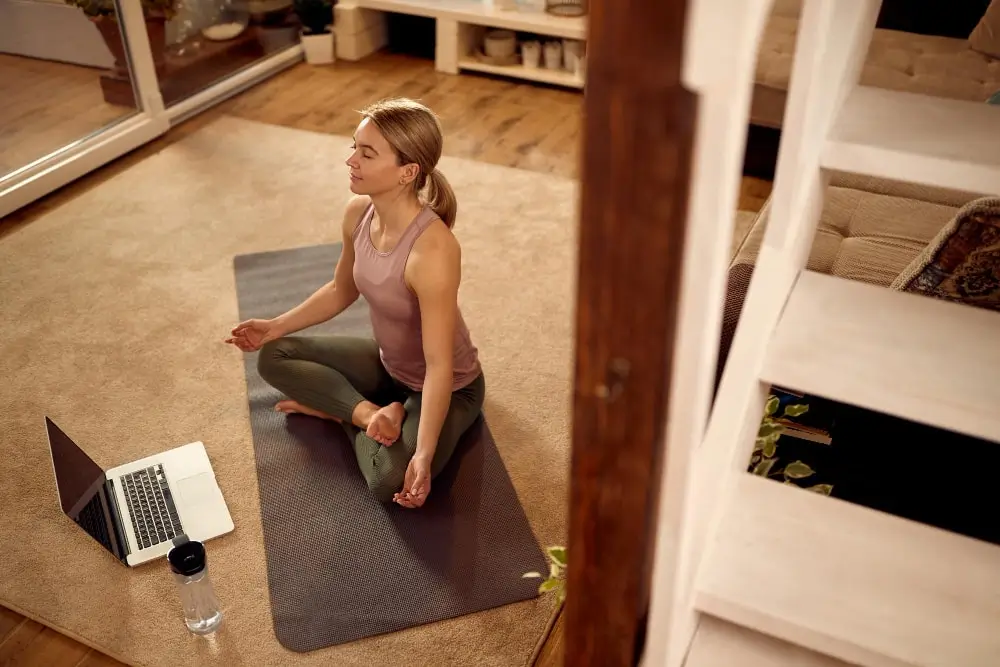Image source: Freepik
The Silent Strain: Understanding Burnout in Urban Living
In high-paced cities like Makati, Ortigas, and Quezon City, the grind of professional life often glorifies constant activity. Yet underneath the surface, burnout quietly creeps in. Preventing burnout is a survival skill for urban professionals who want to maintain long-term well-being and productivity.
Burnout doesn’t arrive dramatically. It builds through daily patterns: skipped meals, constant multitasking, cancelled social events, and sleepless nights spent catching up on work.
As days blur into each other, the body begins to break down, the mind starts to wander, and emotional energy disappears. Recognising this early is key to avoiding the negative effects it has on overall health.
burnout, stress, focus, feel overwhelmed, job, health, depression, control, feel, exploring, consulting, workplace.
Preventing Burnout by Recognising the Early Signs
Burnout doesn’t always look like collapse. Often, it feels like constant fatigue or waking up already feeling tired.
You may notice changes in appetite, a lack of motivation, or emotional detachment in your relationships and job. A reduced sense of accomplishment or chronic self-doubt can emerge even in high achievers.
If you feel overwhelmed by tasks that once seemed simple or mentally check out during meetings, those could be early signs. Even moments of joy start to feel distant, replaced with a dull, unshakable sense of being emotionally drained.
The Role of Rest Days in Rebuilding
One of the most effective strategies for preventing burnout is incorporating intentional rest days. More than sleep, rest means disengaging from the mental demands of work and allowing your body and mind to restore.
This doesn't equate to doing nothing. It involves creating meaningful breaks that contribute positively to your well-being.
Spending time doing things that foster joy, creativity, or reflection like yoga, reading, or short walks, can have a significant positive impact.
Rest is a necessary form of self care that renews energy levels and strengthens your ability to cope with everyday stress.
Prioritising Mental Well-being Over Constant Productivity
Philippine work culture often celebrates overcommitment. Yet mental well-being must be prioritised to sustain performance.
Meditation, journaling, and simply saying “no” to unnecessary tasks are acts of self-preservation. When you set boundaries around your time and energy, you protect your mental reserves.
Rest is not a reward for finishing everything on your list; it’s a prerequisite for showing up fully in both personal life and professional life. Even successful people can’t give their best without first taking care of their own needs.
Creating a Well-Rounded Life Outside the Office
A well-rounded life takes deliberate effort. That includes exploring interests beyond the workplace. Whether it’s joining a local art class, engaging in community volunteering, or catching up with family, these experiences foster emotional depth and resilience.
Urban professionals who live in residences like those in Vista Residences Ortigas or Katipunan often choose locations that provide easy access to parks, gyms, and cafés.
These small but significant lifestyle options enable residents to balance their social life with the demands of work, nurturing a more sustainable pace.
The Power of Physical Activity and Regular Exercise in Preventing Burnout
Physical activity has an undeniable effect on mood and stress levels. Regular exercise improves not just the body but also mental clarity. It boosts sleep quality, increases serotonin, and recharges both emotional and physical energy.
This doesn’t always mean intense workouts. A 30-minute yoga flow or a light jog around the neighbourhood can be enough to make a difference. Movement helps you reconnect with your body, reduce stress, and regulate your emotional state.
The Impact of a Healthy Diet on Your Energy Levels
What you eat also plays a key role in preventing burnout. A healthy diet supports stable energy levels throughout the day and reduces brain fog. Skipping meals or relying on fast food during busy weeks leads to crashes that mimic symptoms of exhaustion or even depression.
Meal prepping for the week—especially during weekends—can ensure that you stay nourished even during hectic periods. Whole foods, fibre, and balanced meals can regulate appetite, support the immune system, and improve mental focus.
Sleep Isn’t a Luxury, It’s Essential
One of the first casualties of a demanding job is sleep. Yet poor sleep has a cascading effect: lower immunity, mood swings, slower cognition, and chronic fatigue. Sleep is foundational to physical and mental health.
Create an evening routine that supports winding down. Dimming lights, avoiding screens, and engaging in light reading or meditation can signal to the brain that it's time to rest. Treat sleep as part of your self-care practice rather than something you fit in last.
Combatting Emotional Exhaustion Through Community
Feeling emotionally drained often stems from disconnection. Humans are wired for relationships, and engaging with a supportive community can have a profound effect on mood and hope.
Whether it’s sharing a meal with family, addressing sources of worry, or consulting a therapist, seeking support must be normalised.
In many urban residential developments, such as Vista Residences in Manila, shared spaces like lounges or rooftop gardens offer opportunities to socialise, fostering community among busy professionals who might otherwise isolate.
Reduce Stress by Spending Time on Interests That Matter
Investing effort in personal interests can reignite motivation and purpose. It doesn’t matter whether it’s music, language learning, or gardening—what matters is that you’re reconnecting with a part of yourself that isn’t defined by your job.
This kind of emotional outlet helps to offset the daily grind and supports overall mental well-being. When people have something to look forward to beyond work, the risk of burnout significantly decreases.
Learning to Say No and Set Boundaries
One of the most overlooked tools in reducing stress is the ability to set boundaries. Saying no to back-to-back meetings, weekend emails, or social obligations you’re too exhausted to attend is a form of strength, not failure.
Boundaries allow you to regain control over your time and create space for what truly restores you. If you’re constantly feeling tired despite having free time, it might be that your “rest” time is filled with passive obligations that drain more than they give.
The Gradual Process of Recovery
Healing from burnout doesn’t happen overnight. It’s a gradual process that involves reworking your routine, letting go of perfectionism, and forgiving yourself for previous habits that led to exhaustion. You don’t need a complete life overhaul—just intentional shifts that prioritise rest and balance.
Start with one small change each week: one less hour of screen time, one extra home-cooked meal, one added social event with someone you trust. These small steps lead to bigger changes over time.
Following Tips That Work for You
There’s no single formula for well-being. The most effective strategies are those that feel sustainable and aligned with your lifestyle.
For example, one person may find joy in early-morning yoga, while another recharges through weekend brunches with friends. The key is to listen to your body and honour your needs.
The following tips are helpful only when those tips are realistic. You are the best judge of what truly restores you, what feels like a break versus another task on your to-do list.
Cultivating Joy as a Form of Resistance
In cities filled with deadlines and distractions, choosing joy becomes an act of resistance. Making time for laughter, music, connection, and creativity helps realign your sense of purpose and rejuvenate your energy.
Joy need not be grand. Even small daily moments like good coffee, warm light, and quiet walks. These are not indulgences. They are your fuel.
Redefining Success Through Satisfaction, Not Speed
Success doesn’t need to look like being the busiest person in the room. True satisfaction comes from the ability to lead a balanced life, one where both your job and personal world feel meaningful.
When you prioritise sleep, meals, relationships, and interests, you build a life that’s rich not just in accomplishment but aligned with your deeper aim for emotional depth and balance.
Final Thoughts: Rest as a Lifelong Commitment
Burnout isn’t just a professional issue. It seeps into every aspect of life, whether in relationships, health, creativity, or self-worth. Preventing it is an act of everyday discipline.
It’s in the meals you prepare, the nights you sleep well, the weekends you unplug, and the people you spend time with.
Urban professionals must embrace rest not as an escape but as a core pillar of success. When you allow yourself to pause, you gain clarity, strength, and the energy to live fully.
.webp)


.webp)
.webp)
.png)








